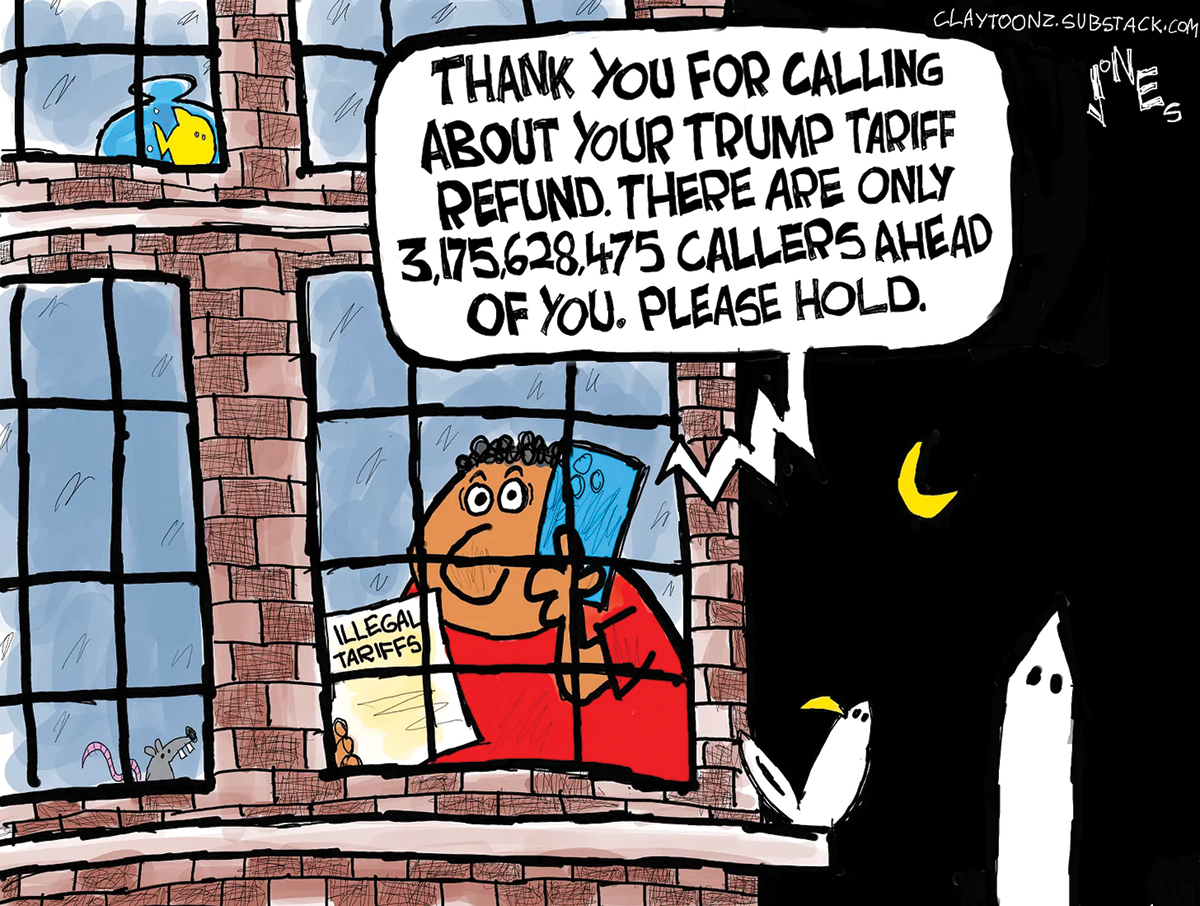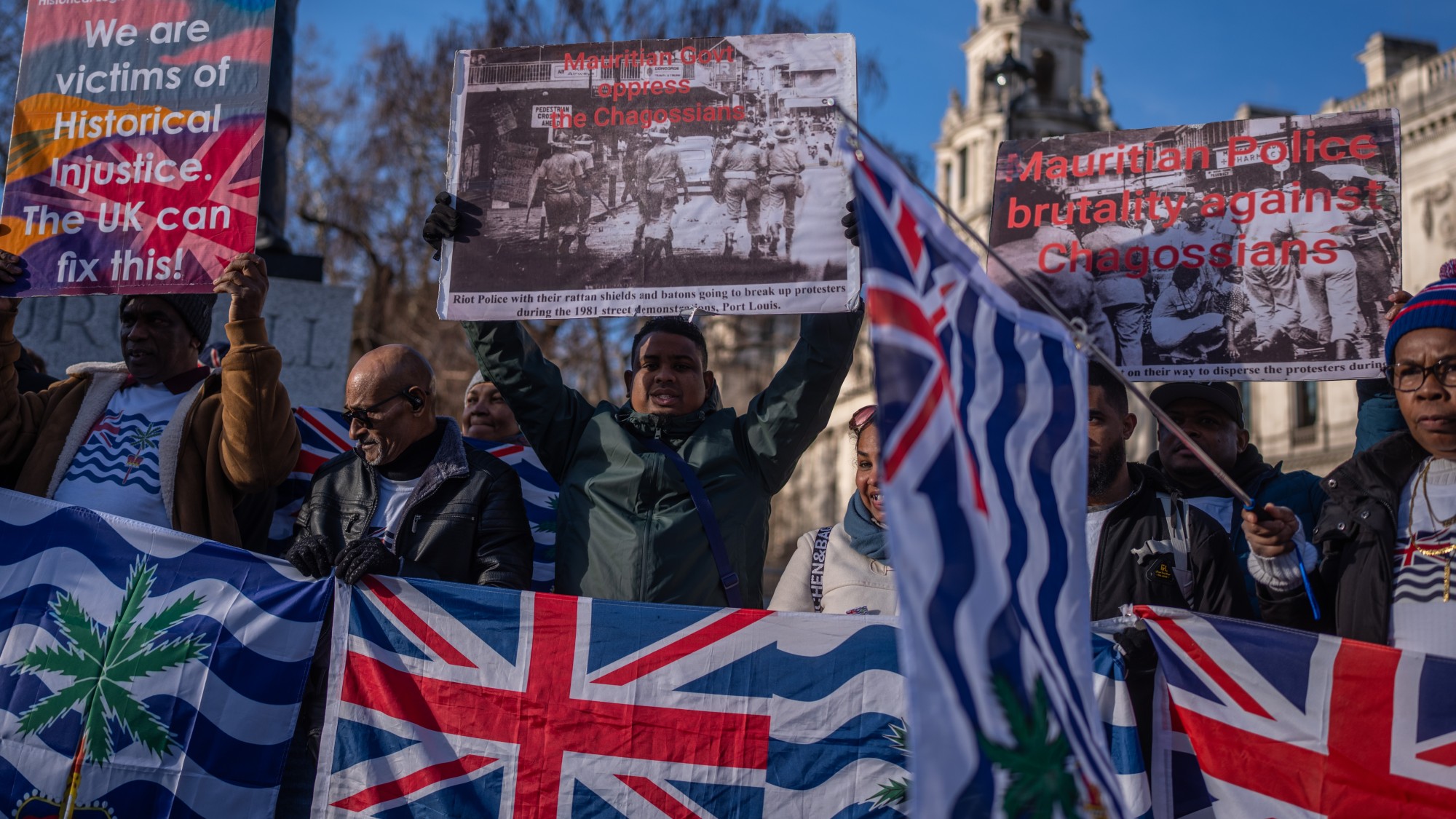Rand Paul: What did he achieve with his filibuster?
The GOP senator's 13-hour talking filibuster pushed the administration to clarify its drone policy.
A free daily email with the biggest news stories of the day – and the best features from TheWeek.com
You are now subscribed
Your newsletter sign-up was successful
It pains me to admit it, said Eugene Robinson in The Washington Post, but “Rand Paul was right.” I had always dismissed the freshman GOP senator from Kentucky as an “archconservative kook,” but last week Paul staged a valuable, 13-hour talking filibuster on the Senate floor, demanding that the Obama administration reveal whether it thinks it can order drone strikes against U.S. citizens on American soil. Perhaps it was a stunt by Paul “to boost his national profile,” but our country really needed a larger debate on presidential authority to order targeted assassinations. Paul provoked one, by insisting that Attorney General Eric Holder clarify his earlier statement that the president could use drones domestically under “extraordinary circumstances.” Did that mean, Paul asked in his filibuster, that if the president gave the command, “Americans could be killed in a café in San Francisco or in a restaurant in Houston?” Holder responded: “The answer is no.”
Paul deserves due credit for getting an answer, said Jacob Sullum in Reason.com, but Holder’s full response left plenty of “wiggle room.” The attorney general said that the president couldn’t use drones “to kill an American not engaged in combat on American soil” (emphasis added). In other words, if the president deems an American to be an enemy combatant engaged in an act of terrorism here, yes, he could order that a Predator vaporize him with a Hellfire missile. Why is that such a surprise? asked The Wall Street Journal in an editorial. If enemy soldiers came ashore to attack the country, the commander in chief could obviously issue an order that they be bombed. Similarly, if U.S. citizen turned al Qaida leader Anwar al-Awlaki had been engaged in a terrorist act while hiding out in Virginia instead of Yemen, he, too, could be lawfully treated as an enemy soldier and killed. Paul muddied the established law by raising the absurd specter of the president using drones to kill college protesters and political dissidents. “If Mr. Paul wants to be taken seriously he needs to do more than pull political stunts that fire up impressionable libertarian kids in their college dorms.”
Paul’s filibuster may have been theatrical, said Amy Davidson in NewYorker.com, but it was no mere stunt. He successfully embarrassed the Obama administration into finally giving some honest answers about its drone policy, thus showing why “an angry libertarian can be so valuable.” At the same time, said John Kass in the Chicago Tribune, Paul scrambled the usual political dividing lines, uniting libertarians, Tea Party conservatives, and liberals into a new constitutional coalition alarmed by a “war on terror” that has no boundaries or limits.
The Week
Escape your echo chamber. Get the facts behind the news, plus analysis from multiple perspectives.

Sign up for The Week's Free Newsletters
From our morning news briefing to a weekly Good News Newsletter, get the best of The Week delivered directly to your inbox.
From our morning news briefing to a weekly Good News Newsletter, get the best of The Week delivered directly to your inbox.
For the Republican Party, that could be an important turning point, said Jonathan Chait in NYMag.com. It was startling to hear a Republican senator call for any limits whatsoever to a president’s war-making powers—and even more startling that he was later praised for it by talk-radio host Rush Limbaugh, as well as the other “unofficial organs of the party” who wield such influence over the Republican base. In time, said Ross Douthat in The New York Times, Paul’s filibuster may be remembered as the moment the GOP started backing away from the “hair-trigger hawkishness and absolute deference to executive power” that characterized the Bush years. Paul has started a new intra-party debate—one that may finally drag the Republicans into “the post-post-9/11 era.”
A free daily email with the biggest news stories of the day – and the best features from TheWeek.com
-
 Political cartoons for February 23
Political cartoons for February 23Cartoons Monday’s political cartoons include tariff refunds, Epstein Island visits, and more
-
 Can Keir Starmer save the Chagos deal?
Can Keir Starmer save the Chagos deal?Today's Big Question Opponents confident they can scupper controversial agreement as PM faces a race against time to get it over the line
-
 China and the rise of the humanoid robots
China and the rise of the humanoid robotsThe Explainer The country’s ‘bustling’ robotics industry is dominating the global market, though experts are split on how concerned we should be
-
Obama: Did he damage his credibility over Syria?
feature With a “slip of the tongue” Secretary of State John Kerry may have not only averted war, but also saved the Obama presidency.
-
Syria: Is a ‘shot across the bow’ enough?
feature The U.S. response to Bashar al-Assad's use of sarin gas must be painful enough to serve as a true deterrent.
-
The military: Do women belong in combat?
feature Defense Secretary Leon Panetta announced his decision to end the long-standing ban on female troops serving in combat roles.
-
Iraq: What was gained, what was lost
feature President Obama declared an end to the war in Iraq and welcomed home soldiers at Fort Bragg.
-
Iraq: Is it a mistake to bring home U.S. troops?
feature Iraq's stability is extremely fragile, and the possibility of renewed conflict among Sunnis, Shiites, and Kurds is all too real.
-
Terrorists in court: What did the Ghailani verdict prove?
feature Al Qaida operative Ahmed Ghailani was convicted of one charge—out of a total of 285 charges—for his part in the 1998 U.S. Embassy bombings in Africa.
-
The Catholic Church: A crisis of confidence
feature Was the pope complicit in covering up sexual abuse scandals when he served as a cardinal and an archbishop?
-
Iraq: Is Obama really ending the war?
feature Obama unveiled a timetable under which all “combat units” would leave Iraq by August 2010; the plan also allows for the continued presence of up to 50,000 “support troops” until December 2011.